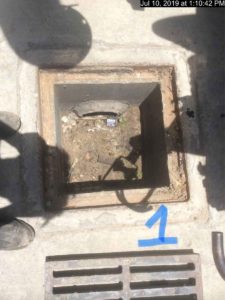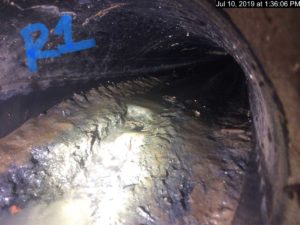 A Special Note from our Operations Manager, Mike Zarro.
A Special Note from our Operations Manager, Mike Zarro.
Over the past week, those of us living on the Gulf Coast have once again been reminded of that sinking feeling in our stomachs that Hurricane season is here. Those of us who live in southeast Texas, know all too well what can happen when mother nature gets angry.
My experience in this industry has taught me a few things.
First, weather in Houston is predictably unpredictable- If you have lived in Southeast Texas long enough, you know it can be sunny in the morning and flooding three hours later. Part of the equation is simple. It rains a lot on the Gulf coast and when it does, it comes in buckets, sometime 3-6 inches at a time. When that multiplies over a few days to 12-20 inches of rain, you have some pretty serious flooding potential. And we all know, it’s a matter of when this happens, not if.
The second part of the equation is a little more complicated. If you live in the Houston area, Harris County is always expanding, with many buildings and infrastructure being developed. That’s a lot of brick, mortar, and concrete. Great for mobility and opportunity, bad for stormwater run-off. When you get a lot of water, in a short period of time, in a place with tons of concrete and mortar, you have the potential for some flooding.
 The last part of the equation is really a proactive approach on our part. Let’s be honest – the first and second parts of the equation we all have little to no control over. Our city is going to continue to grow, it’s never going to stop raining, and hurricanes on the gulf coast are a forgone conclusion. What we can control is managing your property. Most of us who own or manage businesses have a Stormwater Quality Management Plan (SWQMP) for our site, especially if it was developed after Tropical Storm Allison.
The last part of the equation is really a proactive approach on our part. Let’s be honest – the first and second parts of the equation we all have little to no control over. Our city is going to continue to grow, it’s never going to stop raining, and hurricanes on the gulf coast are a forgone conclusion. What we can control is managing your property. Most of us who own or manage businesses have a Stormwater Quality Management Plan (SWQMP) for our site, especially if it was developed after Tropical Storm Allison.
Here are a couple of questions to guide you in being proactive during hurricane season:
- Know what’s on your Stormwater Quality Management Plan (SWQMP) or Stormwater Pollution Prevention Plan (SWPPP). What does it require?
- Do you have a detention pond or retention pond? Does it have a trash rack? Is it clear of debris so that water can flow freely without being obstructed? Is it being mowed and maintained regularly?
- Do you have an OGT separator? What kind is it? Are you maintaining and monitoring it? Is it being cleaned out on a regular basis?
- What about inlet inserts? Are they being cleaned and monitored?
- If you are doing construction on a site, do you have an SWPPP plan in place? Are your BMP’s in order and working properly? Are you inspecting the site weekly to make sure things are operating properly?
 All of this will go a long way in helping to make sure your property stays high and dry.
All of this will go a long way in helping to make sure your property stays high and dry.
Make sure you are renewing the permit ever year. It was designed to handle big rain events by engineers and professionals who specialize in this field. When it’s renewed, it should be certified by a professional engineer, ensuring that your plan and features are up to standard and functioning properly.
If you feel lost on these issues, give us a call. We know it’s a lot. Let us do the thinking for you, it’s what we do. We can help you with any and all of it, or at minimum be a resource for you as you try to figure out the next steps. Call us at 281-516-0100 today.




